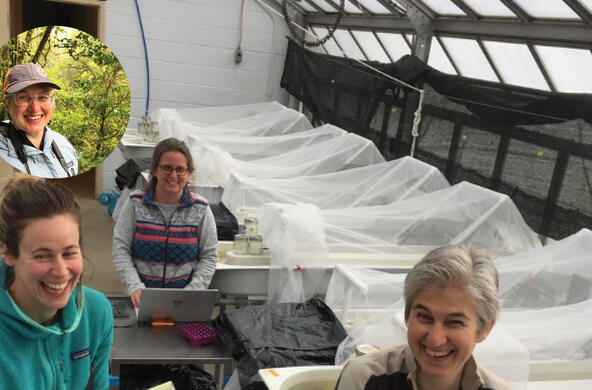The chemicals that go down our drains wind up in rivers and streams.
Synthetic chemicals – found in common household items like medications, toothpastes, cosmetics, and cleaners – are being produced and consumed at increasing rates worldwide. Most wastewater treatment facilities are not equipped to filter out synthetic chemicals, so they flow into ground and surface waters.
Pharmaceutical pollution is especially concerning. Aquatic life is swimming in a cocktail of antidepressants, amphetamines, birth control, and antihistamines. And research shows that these compounds alter organisms and put ecosystems, drinking water, and human health at risk.
Pharmaceutical pollution in freshwater is largely unstudied. Cary is changing that.
Tracking the fate of pharmaceuticals in the environment. Cary-led research is revealing how drug pollution impacts aquatic life. Our studies are among the first to show that drug pollution in streams can pass up the food web to animals on land. By studying these toxic legacies, we seek to understand and minimize their impacts.
Investigating ‘superbugs’ caused by antibiotic pollution. The rise of drug-resistant bacteria is a global problem that threatens to undermine the usefulness of critical antibiotics. Cary researchers have found that antibiotics flowing into streams via wastewater are giving rise to drug-resistant ‘superbugs’.
Sound stewardship of freshwater resources starts with science.
Cary Institute is home to an Artificial Stream Facility, where we test effects of pharmaceutical products and other chemicals on aquatic life. By manipulating realistic stream habitats, we can learn what happens to organisms and water chemistry when drugs like amphetamines, antidepressants, and antibiotics enter waterways. The Artificial Stream Facility is among the only of its kind in the world, attracting international collaborators.
Our work on triclosan, a synthetic antibacterial that was recently banned by the FDA for use in antibacterial soaps, demonstrated that triclosan altered bacterial communities and led to rapid development of drug-resistant bacteria. In addition, our sampling in the Chicago Sanitary Canal demonstrated that triclosan resistant communities are present in wastewater impacted rivers.
To help stem a major pathway of contamination, we continue to advocate for upgrades in wastewater infrastructure, including improved wastewater treatment plant technology and repairs to aging and failing sewage systems.
Our work strives to ensure that our freshwaters, and the myriad of life that depend on them, are protected from exposure to synthetic chemicals.





